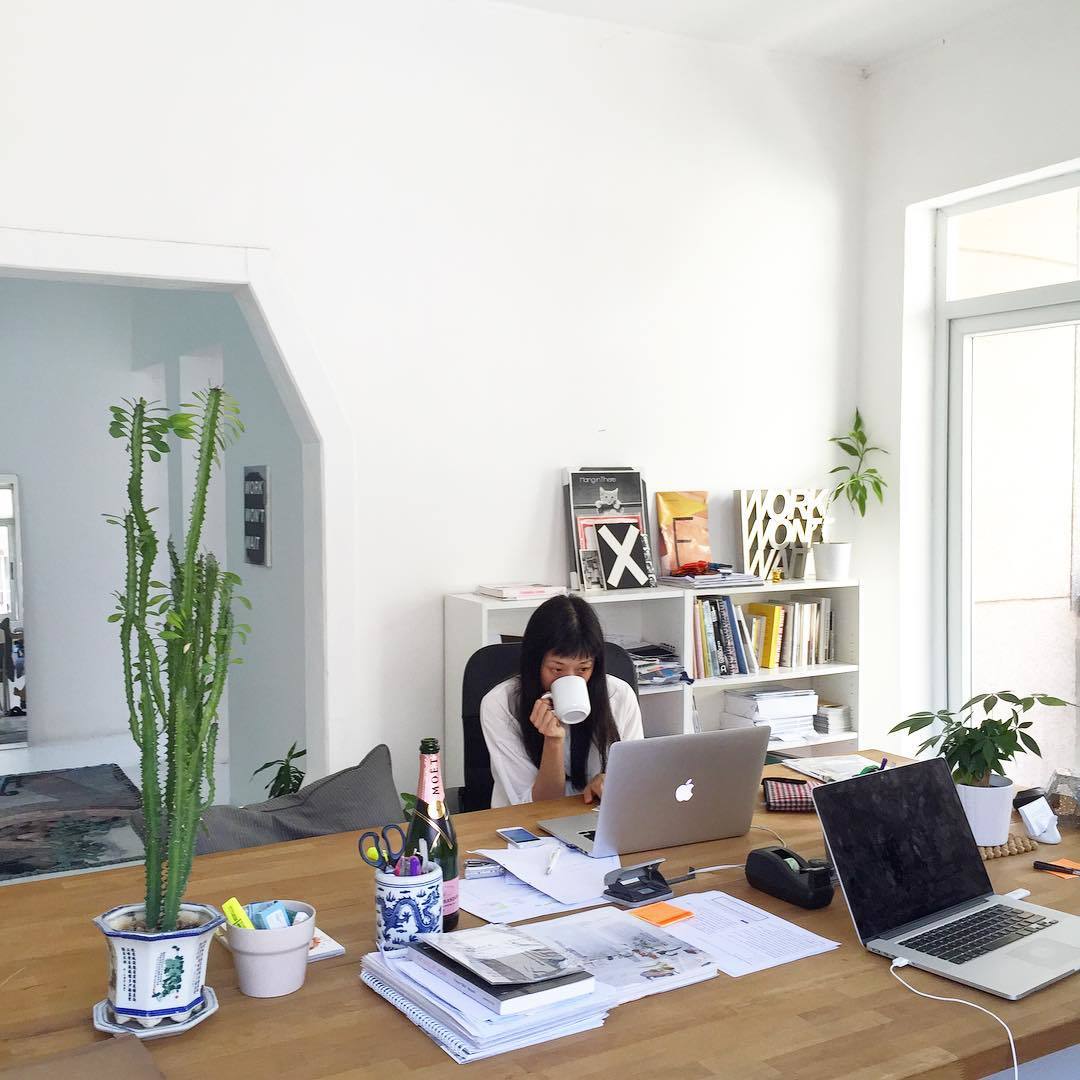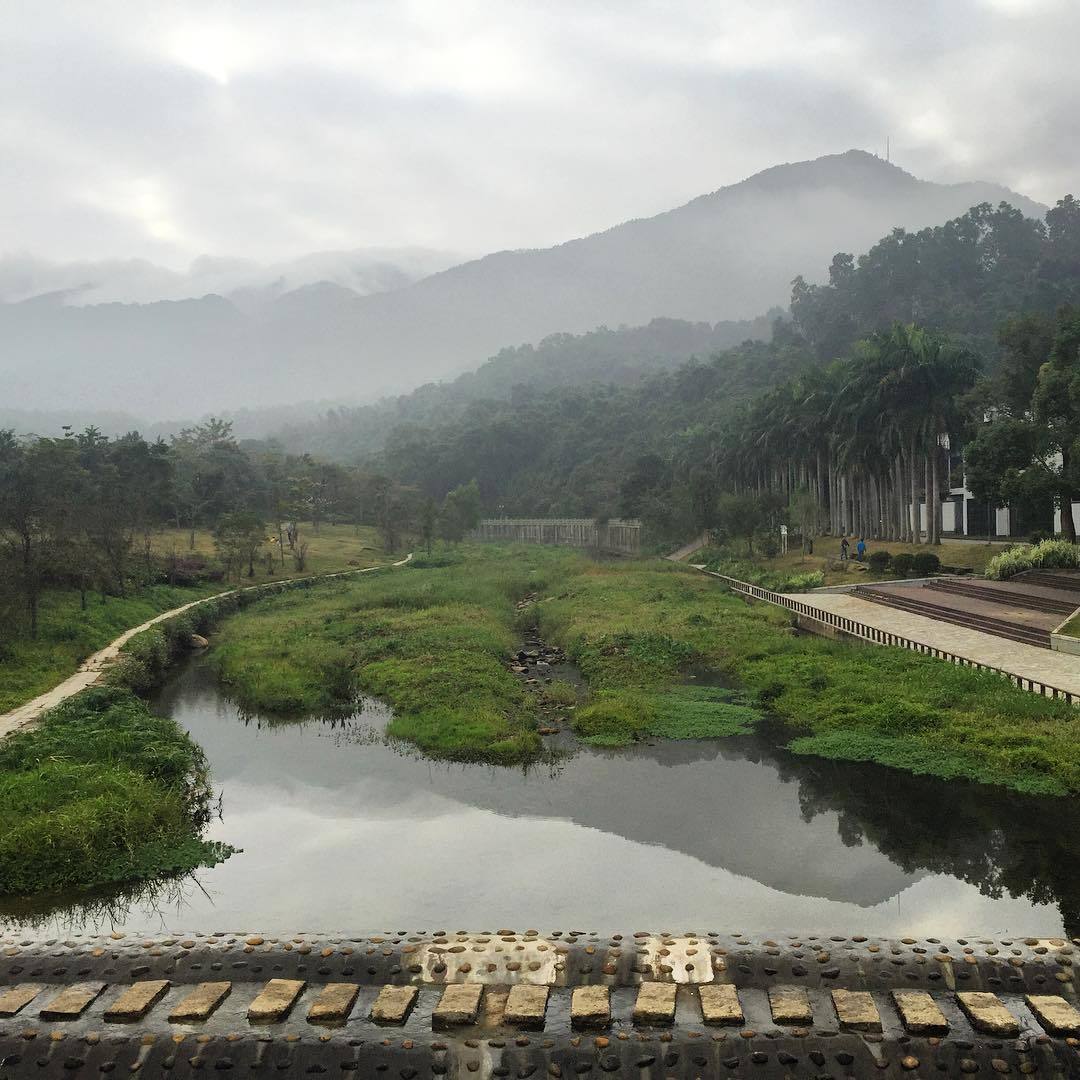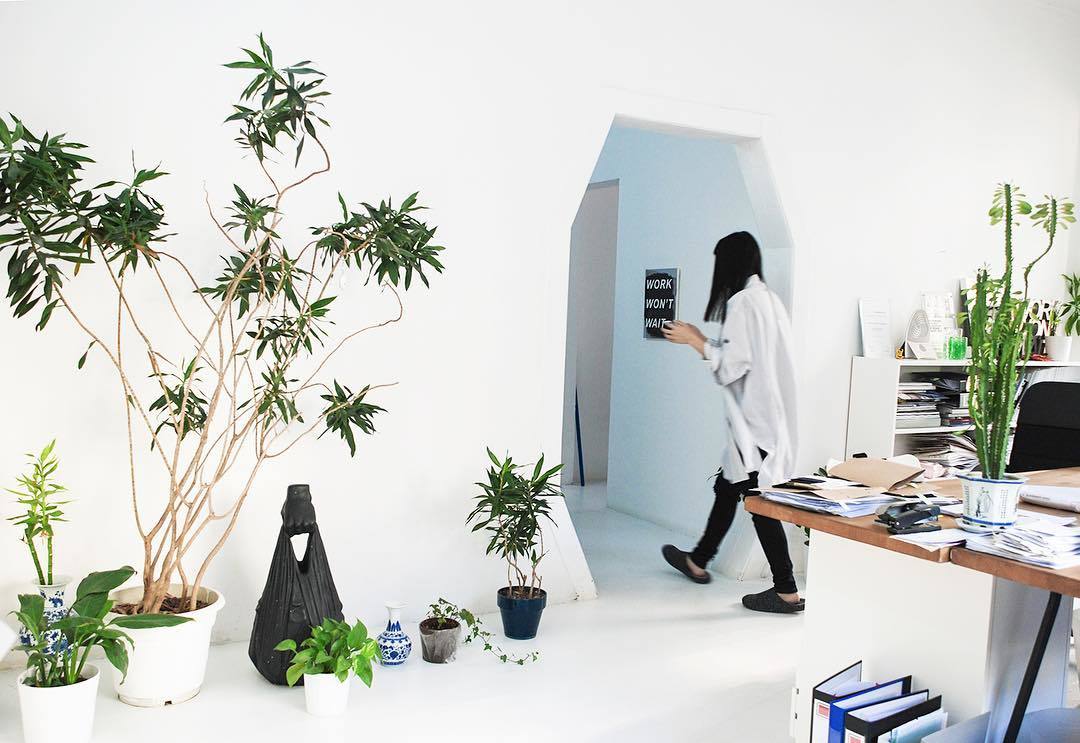From their small beginnings as a collaborative design project in 2008, ffiXXed Studios have since evolved into a fully-fledged, commercially viable brand — tricky territory to navigate when you’re trying to remain loyal to your art practice ethos. After moving between temporary studios in Berlin, Hong Kong, New York and Melbourne, artist and designers Kain Picken and Fiona Lau established their own production studio inside of their home in China’s Wutong Village.
At the foot of the Wutong Mountain in Shenzhen the pair conceive, design and produce their collections. Their tight-knit team of young assistants and veteran garment makers all live locally, and together — in this unique space — they’re constructing clothing and objects “to address, transcend and stimulate a variety of social and domestic situations.”
Away from home, the brand is making a considerable name for themselves. With 60 retail stockists across Japan, China and Hong Kong they’re now preparing for a European and US invasion. Following a successful debut at Paris Fashion Week and a much-lauded presentation at Shanghai Fashion Week, Opening Ceremony is eying their work. i-D caught up with the duo mid creative and commercial evolution.
What is the one thing that has fundamentally changed in the eight years since you launched ffiXXed in Berlin?
One of the real shifts for us has been thinking about ourselves as a Chinese or Hong Kong brand. This really started to change when we were nominated for the Woolmark prize to represent Hong Kong. Suddenly, it became big part of our brand identity. We saw ffiXXed as this kind of floating project even when we had already been based in Shenzhen for a couple of years. I think when we changed our name from ffiXXed to ffiXXed Studios it was also a way of us solidifying something about a new way of thinking within the brand.
Wutong Mountain is such a fascinating place. What’s your work and home set up like?
When we first decided to set up our own production studio in Shenzhen, there was not the same international spotlight on Chinese design as there is now — it was only 2010. A lot of people thought we were crazy! We relocated to Wutong Mountain about four years ago and brought our team here with us. Basically, we have an integrated living and working situation! It’s all inside a small four level building. One level for studio, one for sampling dispatch, one for production, and another for packing. We live on the top floor as well. It’s still a really small set up, all together including the sample room and QC it’s about 20 people.

Does the location ever feel isolating?
We have a nice balance between the relative isolation of Wutong Mountain and travelling for fashion week — that mix keeps thing even. Our lifestyle in Wutong is pretty local, but it’s not necessarily isolating. Perhaps we’re just that were used to working in this way! There are always people coming through and there’s a whole creative scene here in Shenzhen, a lot of interesting people working together.
There has been a well documented shift in Chinese fashion: consumers now largely buy Chinese brands. How is that consumer revolution helping ffiXXed Studios?
On business side of things it’s quite good. The most valuable part of it all is just being part of what’s happening in China now: it’s really energising to be part of something new that’s evolving and changing.
Given you produce in China, are there issues of finding factories that share your commitment to creating ethical workplaces?
Yes, of course there are still factories out there that are not up to standard, but from what we’ve witnessed the working conditions and pay in China are quite good: especially when you compare the textiles factories with other industries, like tech. For the most part, the garment workers we have talked too have seen a pretty constant rise in salary since there is a shortage of skilled garment workers. So they also tend to have a lot more options in terms of employment. On the down side, we’ve seen lot of manufacturers really struggling with those increased salaries: it makes it hard to compete internationally. A lot of factories can’t find staff, which means it’s hard to get really big orders made: some factories are running at less than half capacity!

Do you ever struggle with elements of the global fashion system today?
It’s pretty crazy and completely unsustainable on any level really. Environmentally it’s fucked, you still have people in various parts of the world in unethical working situations. The whole system of presenting collections is totally out of whack with the attention economy. At the same time, that allows people like us to forge out some space and work in our own way to a degree. It has always been really important to us to control our own production, to have some connection to the people involved in that part of the process. We try our best to make our production sustainable.
As things go global, do you plan to remain in China?
We couldn’t see ourselves in anywhere else!
Credits
Text Courtney DeWitt
Images via Instagram
